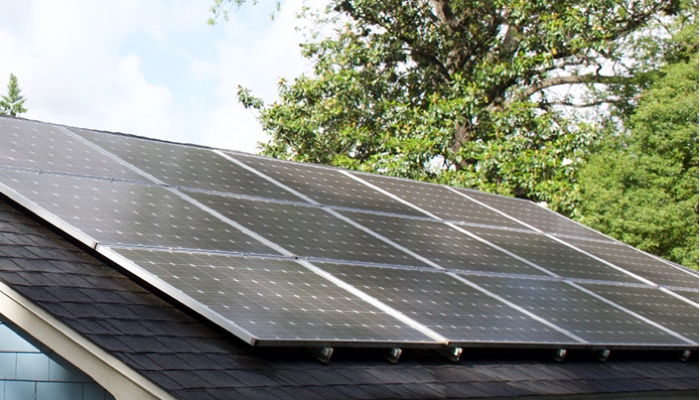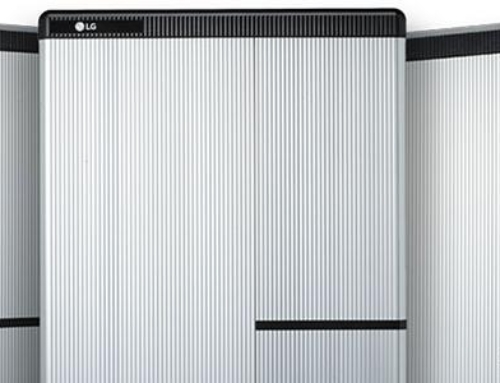How Residential Solar Can Bring Freedom and Choice to Households
As the cost of renewable energy continues to fall, more and more households are switching to clean, renewable electricity sources. Among the most affordable and abundant of these is residential solar. According to the Solar Energy Industries Association, solar generated $17 billion in investments for the U.S. economy in 2018.
Five Reasons to Install Home Solar Panels
1. Provides Clean, Renewable Energy
Solar power is a 100% clean, renewable energy source. It reduces reliance on oil, coal and natural gas for electricity production. These fossil fuels produce harmful emissions that affect the quality of air, water and soil, and are responsible for global warming. It’s estimated that between 2000 and 2065, the Earth will lose more species of plants and animals to extinction than in the previous 65 million years combined. That’s a staggering statistic and one driven significantly by the effects of greenhouse gases from fossil fuels.
In contrast, solar energy produces no pollution. The sun’s abundant power offers an unlimited source of energy that does not strip the landscape or harm the ozone layer. Residential solar energy systems represent an investment in the future of the planet, conserving non-renewable energy sources and protecting the environment.
2. Gives You Freedom and Control Over Electricity
U.S. households have experienced a steady increase in both frequency and duration of power outages over the last 15 years, according to research from Lawrence Berkeley National Laboratory. The United States has the highest number of power-outage minutes of any developed nation. Our electricity grid is 100 years old and was not built for today’s vastly increased population and extreme weather events. California’s largest utility, PG&E, estimates it will need $75 billion to $150 billion over several years to make the grid more secure, a cost that will be passed on to customers.
Our grid needs to be modernized to meet the increasing demands of a plugged-in society. Adding a home battery unit powered by residential solar panels can store enough electricity to power homes through peak usage hours, thereby giving households the freedom to control their family’s electricity.
Home batteries along with solar panels are also a viable buffer against the rolling blackouts introduced by electric companies for wildfire prevention. Today’s antiquated grid means that even communities not directly threatened by wildfires will experience power outages. All PG&E customers are at risk of losing power this summer, impacting up to 16 million people.
With a residential solar system, your home is powered by rooftop solar panels during the day and by energy stored in the battery at night. By installing solar panels, you gain energy independence.
Solar panels and home batteries are becoming more affordable, accessible, resilient and efficient. They provide peace of mind and energy security for households when the power goes out or the next storm strikes. Home battery systems replenish with energy generated from the sun and removes the inconvenience, uncertainty and expense of refueling a gas or diesel-powered generator. Battery Storage is a preferred alternative for many families to a traditional backup generator.
3. You May Save on Your Current Utility Bill
If you’re facing rising home energy expenses, home solar panels can offset your costs.
Savings can even accrue on cloudy days, since the sun emits energy through clear and cloudy skies. Solar offers year-round efficiency and savings, even in colder, cloudy climates. Depending on their size, efficiency and orientation relative to the sun, some solar panels actually generate more electricity than your home consumes. This could reduce your monthly electric bill to zero. In some areas, you may actually qualify for a rebate if your residential solar power system produces excess electricity. Check with your area’s solar power guidelines.
Most utility bills are rising every year. With World Class solar service plan, customers pay predictable rates for the next 25 years.
4. Qualifies for Tax Breaks
Another factor in the increasing affordability of solar panels is the availability of federal, state and local tax breaks. Since 2016, homeowners have been able to claim 30% of the cost of installing a new residential solar system as a federal solar Investment Tax Credit (ITC). In 2020, the ITC will total 26%, and 22% the following year.
In addition, purchased residential solar panels can improve the resale value of your home. According to Zillow Economic research, homes with solar-energy systems sold for 4.1% more on average than comparable homes without solar power. For the median-valued home, that translates to an additional $9,274.
5. Costs Have Fallen
The cost of solar has dropped dramatically in recent years, falling more than 70% in just the last decade. You’ll save money on maintenance too, since there are no moving parts to break down. In addition, the cost of home solar batteries have dropped substantially as well. The benchmark levelized cost of electricity (LCOE) for lithium-ion batteries has fallen 35% to $187 per megawatt-hour since the first half of 2018, according to research company BloombergNEF (BNEF).
The time for solar is now. See if it is right for you. We’re here to help every step of the way. Contact our World Class solar advisers for a complimentary solar battery storage quote today.



